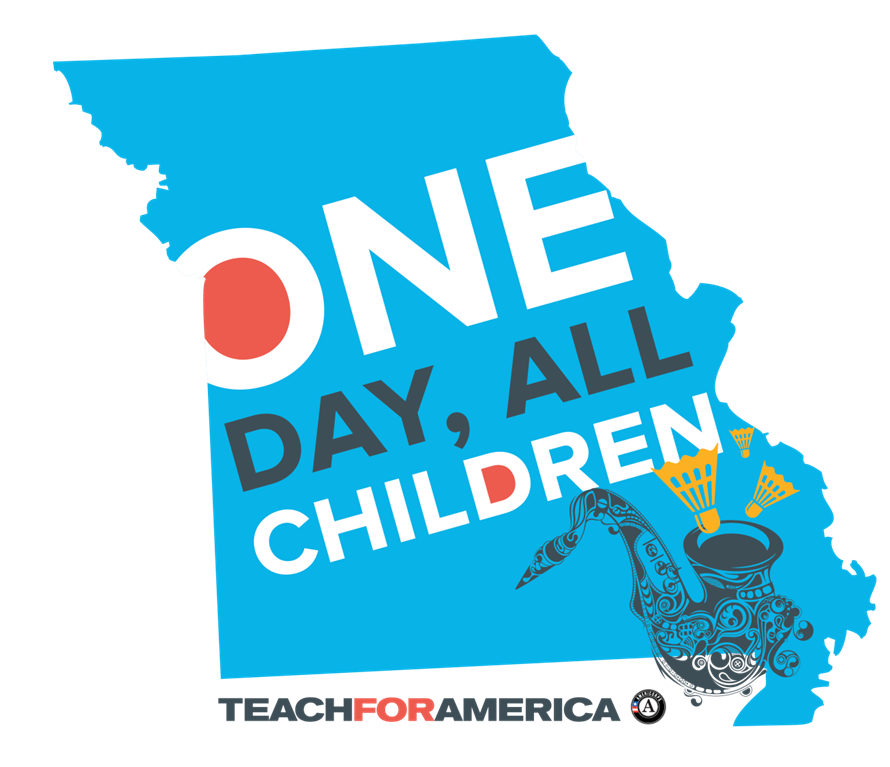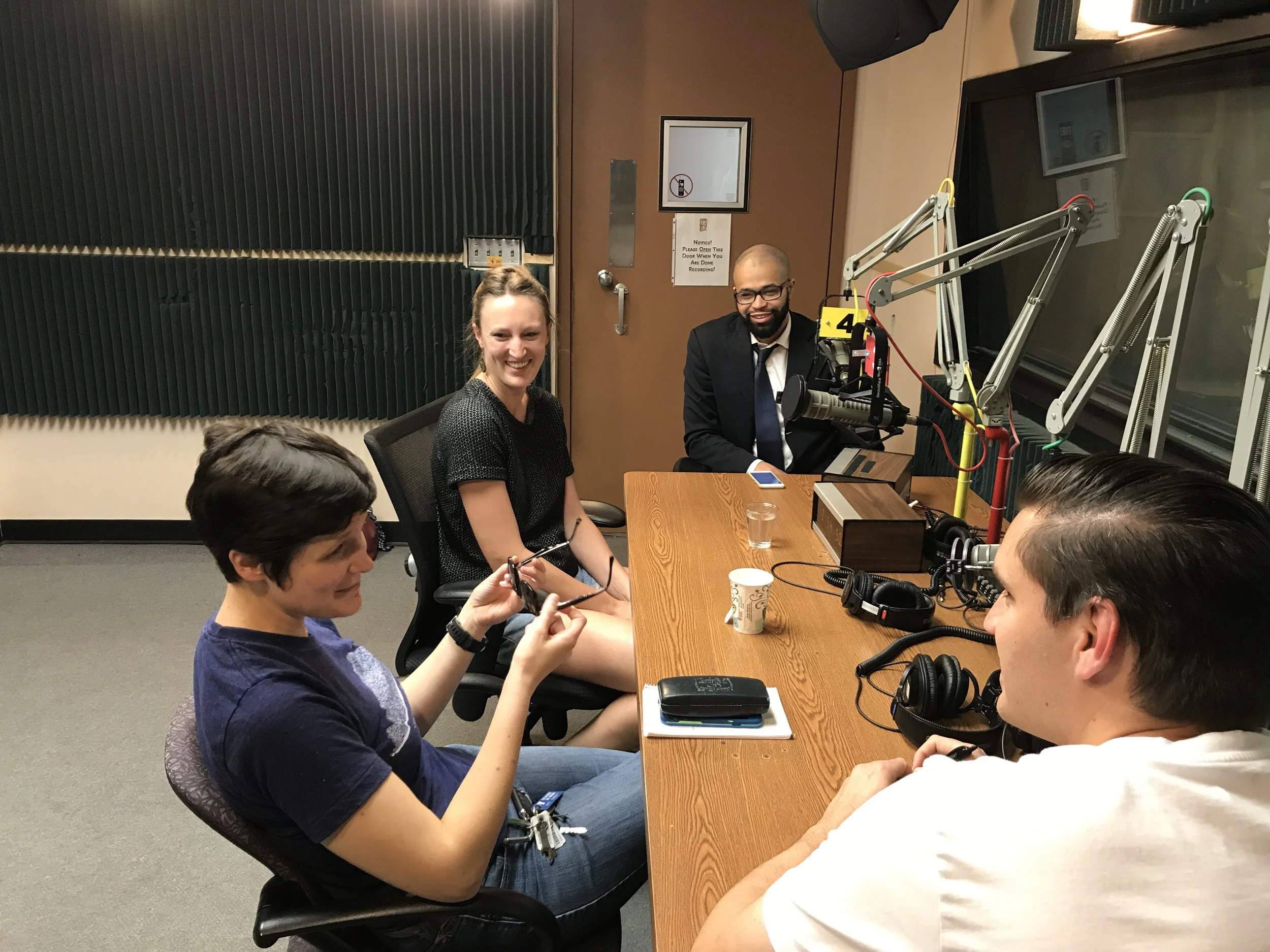This is a heavy episode. First, we discuss how to talk to students in the wake of tragedy following the Las Vegas massacre. Then, we take on white supremacy in schools. Sure, giving kids an assignment in which they pretend to be a KKK member is bad, but our teachers say that's not the worst part.
It was inevitable that our country's national anthem protest controversy would come to the schoolhouse. How should teachers react when students refuse to stand for the anthem or the pledge of allegiance?
Students at a high school hold a sit-in demanding action against other students who wrote transphobic things in a group chat. How should teachers respond to both students? Plus, a look at per-pupil spending in the United States compared to other countries. What can we learn from international education spending?
Virtual reality isn't just for gamers anymore. Some people think it could be the next big innovation in teacher training, but our teachers have questions. Plus, in the latest Betsy Breakdown, our teachers get heated over the idea of whether a school should host the Secretary.
When Hurricane Harvey hit Texas, many people had more existential problems than sending their kids to school. But in the immediate aftermath, some educators volunteered to continue teaching classes at shelters around Huston. This is a story from one of those teachers.
Music used in this episode is Inspiring Corporate and Scottish Indie by Scott Holmes; all have been edited.
Trump's DACA decision is a big one for students and schools. You may have questions as teachers, we have some answers. Plus, we talk about Chance The Rappers new award show for teachers, and another edition of the Betsy Breakdown.
Music used in this episode is Inspiring Corporate and Scottish Indie by Scott Holmes; Back Stairs by Podington Bear; and The Big Ten by Blue Dot Sessions; all have been edited.
A video of high school cheerleaders being forced to do the splits goes viral. Our teachers ask, how do you know when you're truly pushing kids and when you're going to far? Plus, research shows that kids with a few close friends may do better later in life than popular kids. And another round of Ask A Teacher.
Music used in this episode is Inspiring Corporate and Scottish Indie by Scott Holmes also Tiny Putty and The Big Ten by Blue Dot Sessions; all have been edited.
Some are saying Charlottesville was a turning point. Do our teachers feel the same way? Plus, new research suggests grade inflation is the newest form of the achievement gap. And, a new segment: Ask A Teacher.
Please join the conversation about this episode and the education landscape on our Community Forum page! And, help us shape this show into what you want it to be:
https://docs.google.com/document/d/1DO8OEJszFtsV2Nohe0W7Rg_xbH9RkjTxjfT0wLuVwOw/edit
Music used in this episode is Inspiring Corporate and Scottish Indie by Scott Holmes also Sunday Lights and The Big Ten by Blue Dot Sessions; all have been edited.
On this episode: our teachers discuss strategies for addressing Charlottesville with teachers and students in school. Plus, how much say should parents have over the classroom, and it's back...The Betsy Breakdown.
Please join the conversation about this episode and the education landscape on our Community Forum page! And, help us shape this show into what you want it to be:
https://docs.google.com/document/d/1DO8OEJszFtsV2Nohe0W7Rg_xbH9RkjTxjfT0wLuVwOw/edit
Music used in this episode is Inspiring Corporate and Scottish Indie by Scott Holmes also Waterbourne by Blue Dot Sessions and All Hot Lights by Poddington Bear
Many schools include hair in their dress codes, and that's gotten some black students in trouble. Our teachers discuss whether dress codes can be racist. And confidence in police is up overall in America, but dropping among young people. What's it like to teach about law enforcement in this age of police shootings and protests?
Music used in this episode is Inspiring Corporate and Scottish Indie by Scott Holmes also all have been edited.
The Trump Administration has its definition of close family, but how do our teachers define who their student's close family are. And new research says that smart phones are distracting even when we're not using them...should schools ban them altogether?
Music used in this episode is Inspiring Corporate and Scottish Indie by Scott Holmes; all have been edited.
Some say computer coding is as crucial to kids education these days as math and reading. Our teachers are skeptical. And, in this current social justice moment, should educators be teaching their students to be woke? One teacher says, "hell yes".
Music used in this episode is Inspiring Corporate and Scottish Indie by Scott Holmes; all have been edited.
Above photo by Alejandro Forero Cuervo
What makes a city a good place to live for teachers?
Data analytics firm GoodCall has its answers. It recently created a list of best cities for teachers--689 cities total--rating some obvious factors like job availability, cost of living, average teacher pay relative to other salaries in the area. It also gathers data on things like local amenities, number of restaurants per capita, and violent crime rates.
A clear pattern emerges in GoodCall’s study. All cities in its top ten are small to mid-size suburbs or exurbs, most of them in the Midwest. Five of them are suburbs of Chicago. But the top city to live in if you’re a teacher in 2017, according to GoodCall, is Bentonville, Arkansas.
Bentonville is a town of roughly 50,000 in northwest Arkansas, just south of the Missouri border. It’s most well-known for being the birthplace and now global headquarters of the Wal Mart Corporation.
Though you may be surprised at it’s place as ‘Best City for Teachers 2017’, Jayna Moffit isn’t. She’s a standout math teacher at Lincoln Junior High in Bentonville. She’s not a Bentonville native, she moved there only after completing a stint as a Teach For America teacher in the Mississippi Delta in the early 2000s. (No Wrong Answers, incidentally, is sponsored by Teach For America Kansas City, which has no association with Jayna.)
She’s lived in Bentonville now more than 15 years. Her husband is a police officer in the town, and her daughter just graduated from Bentonville High. Who better than to get an insight into what’s apparently the best city for teachers than Jayna Moffit? Here’s our conversation.
Music used in this episode is Inspiring Corporate and Scottish Indie by Scott Holmes; all have been edited.
Teachers: LuAnn Fox (high school Advanced Placement Literature); Elaine Jardon (middle school math); David Muhammad (high school international relations.
Two stories of social media pitfalls--one involving teenagers, the other involving a teacher--caught our eye this week. First, a much-discussed story about Harvard rescinding admission for at least 10 incoming freshmen because of offensive memes they posted in a private Facebook group. Our teachers are saddened but not surprised at that kind of behavior. They’re a bit more surprised at our second social media story: a middle school teacher who posted a picture to Facebook of himself flipping off the White House. Should he be punished in some way?
Also, what makes a “good” or “bad” teacher? Reddit users have their ideas. A new study compiles them into an interesting (if incomplete) picture. Our teachers respond and also ask: is labeling “good” and “bad” teaching even helpful?
Music used in this episode is Inspiring Corporate and Scottish Indie by Scott Holmes; all have been edited.
Teachers: Maddie Burkemper (who now teaches 5th grade); Maria Kennedy (high school humanities); David Muhammad (high school government).
Secession is back and not just in American History class. Our teachers this week tackle the story of mostly white Alabama city seeking to secede from a largely black county-run school district. Our teachers have a problem with the district’s stated reasons for seceding and a problem with what they say it means for public education writ large.
Plus, should character traits like “responsibility” and “optimism” on students’ grade reports? Our teachers talk about the uses and abuses of such so-called “soft skills” assessments.
Finally, there’s no Kids These Days this week because our teachers our out of school. (They haven’t been around kids.) But we’re trying something new: a pop culture roundup. This week: a fat-shaming movie poster, Wonder Woman storms America, and “covfefe.”
Links
School secession is actually more common than you might think (U.S. News)
Assessments of “soft skills” are growing in popularity. (Education Week)
A movie poster critics said fat-shamed kids caused a stir. (New York Times)
Music used in this episode is Inspiring Corporate and Scottish Indie by Scott Holmes; all have been edited.
Few education writers (with the possible exception of Jonathan Kozol) are more widely respected and more widely read than Mike Rose. In a career that’s spanned more than 35 years, Rose has produced eleven books on education and learning, ranging in topic from effective literacy strategies to the cognitive complexity of blue-collar work.
His most well-known book may be the semi-autobiographical Lives On the Boundary. It’s now generally considered a classic of the field, often read in education schools and teacher-prep programs. The book details different ways to reach so-called “problem” students, while at the same time mining the deep vein of Rose’s own personal experiences growing up in a working class household that often felt shut out of the educational establishment.
Mike Rose was born in Pennsylvania, the son of Italian immigrants and grew up in Los Angeles. He’s said one of the most impactful things to happen to him growing up was being moved out of his high school’s vocational track into its college prep track. In the college prep track, he had a teacher who advised him on applying to college.
Rose, who now teaches at UCLA, has tended to focus his writing on class divisions he experienced as a student and that still often plague our education system. He’s written passionately about vocational education--what’s now termed Career and Technical Education--and how it can and should be integrated into a more well-rounded education that also includes STEM learning and instruction in subjects like classic literature. He says votech subjects like auto mechanics and shop class are often looked at with snobbery and elitism and are undervalued by the education system as a whole.
Rose has been revisiting these themes on his blog in the wake of the election of Donald Trump as president. He’s not a fan of the president. He makes no bones about his disappointment in Trump’s election, swept to the White House with the support of millions of white, working class voters like people he says he grew up around. We wanted to speak to Rose about how his career’s focus--his lifelong passion for looking at issues of class in education--now may seem more relevant than ever.
Music used in this episode is Inspiring Corporate and Scottish Indie by Scott Holmes; all have been edited.
Teachers: Greg Brenner (high school government); Jaime Meyers (middle school English); Jason Steliga (high school science).
Summer is here for our teachers! Well, almost here. (Sorry Greg.) And they are in a reflective mood.
First up: what does the alleged assault of a journalist by a politician in Montana say about our societal norms? Does it change, at all, how teachers feel about counseling kids to not use violence to solve their problems? Plus, we tackle teen pregnancy. The story of one girl who was barred from walking at her school’s graduation went viral. What do schools do well (and not so well) about dealing with the challenge of teen pregnancy? Finally, our teachers look back on the students--that for better and worse--made an impact on them this year.
One conservative commentator called the case of Greg Gianforte a “moral test” for the Republican Party.
The case of Maddi Runkles in Maryland drew national attention to how her school punished her for her pregnancy.
The Atlantic’s new audio project “What My Students Taught Me” inspired our teachers to think of students who have impacted them.
Kids These Days:
Jaime: Fidget spinners are still in and getting ever-more sophisticated.
Greg: His students are all about getting summer jobs. The most popular places to land? The farmer’s market and a local amusement park.
Jason: He’s soaking in the graduation parties thrown by his students’ families. He’s now been around long enough that it will be the third child from that family he’s gone to a graduation party for.
Music used in this episode is Inspiring Corporate and Scottish Indie by Scott Holmes; all have been edited.
Teachers: Maddie Burkemper (4th grade … all of it); Princeston Grayson (middle school gifted and talented); and Rebeka McIntosh (elementary alternative education)
This week, we can’t not talk about the crazy week that was in Washington. (Here’s a recap. Believe us: you need it.) Our teachers say they used to read the news to decompress from school. No longer. Then, we tackle President Donald Trump’s proposed federal education budget, which would completely eliminate funding for a variety of programs, from gifted and talented education to civics education. Finally, has your school gone “full Google?” Our teachers’ schools have all gone one-to-one or are in the process of going one-to-one with Google Chromebooks. Is this a good thing?
Read:
The Washington Post’s break down of Trump’s proposed education budget.
The New York Times has a fascinating story about the “Googlification of education.”
Kids These Days:
Maddie: She says her kids are still talking about the chant their class came up with for their school’s Field Day. (Maddie demonstrates during the episode.)
Princeston: Signed any student yearbooks lately? Princeston has. A lot.
Rebeka: It’s that time of the year. The final days of the school year are a time for time-killing games and activities. You know what we’re talking about.
A big trend in public education currently is something called “Maker education” or “Maker learning.” There isn’t one universally settled upon definition though its proponents generally use terms like “hands on” and “learner-focused” to describe it.
Benjamin Herold writing in Ed Week said “maker learning” refers to a “wide variety of activities (from computer programming to sewing) that support the development of a mindset that values playfulness and experimentation, growth and iteration, and collaboration and community.
Maker education is part of the broader, loosely organized ‘Maker Movement’ of tinkerers, DIYers, computer programmers, and hackers who put a lot of stock in the act of creation itself and the experimentation and failure that often goes into that.
As you may be able to tell, there’s a lot of buzzwords to sift through when talking about “Maker education.” But what does this look like in schools?
We wanted to try and answer that question. And in the Kansas City metro area where No Wrong Answers tapes there are few schools to get that answer more clearly than Lewis and Clark Elementary in Liberty, Missouri. The school has undergone a revolution of sorts in how teachers their teach and how students learn. And that’s due in large part to the school’s implementation of Maker strategies.
We went there and did something we’ve never done: a live taping of our podcast in front of a small audience of teachers, parents, and students. We wanted to ask people in Lewis and Clark’s community what “Maker education” has meant to them.
Music used in this episode is Inspiring Corporate and Scottish Indie by Scott Holmes; all have been edited.
Teachers: LuAnn Fox (high school English); Elaine Jardon (middle school math); Jason Steliga (high school science)
This week, Besty DeVos is back. The Secretary of Education gave the commencement address recently at Bethune-Cookman University and boy, did it get ugly. Then, we talk chronic absenteeism, what federal DOE officials have called a “hidden crisis” in American education. But it’s not just the stereotypical trouble-making skippers that miss a lot of class. Finally, we tackle a new Pediatrics study that says bullying is down...way down. So why doesn’t it feel like it to our teachers?
Watch excruciating video of Betsy DeVos’s Bethune-Cookman commencement address.
Read some eyebrow-raising federal stats about chronic absences.=
This Pediatrics study says bullying in American schools is dropping precipitously.
Kids These Days:
Luann: Students taking Advanced Placement tests aren’t supposed to talk, text, or tweet about the exams on test day. But they do.
Jason: Chance the Rapper was in town. His students’ heads exploded.
Elaine: Even though she’s still on maternity leave, her students are grade-grubbing at the end of the semester. Ah, the satisfaction of being able to delete on their emails...
Music used in this episode is Inspiring Corporate and Scottish Indie by Scott Holmes; all have been edited.
































